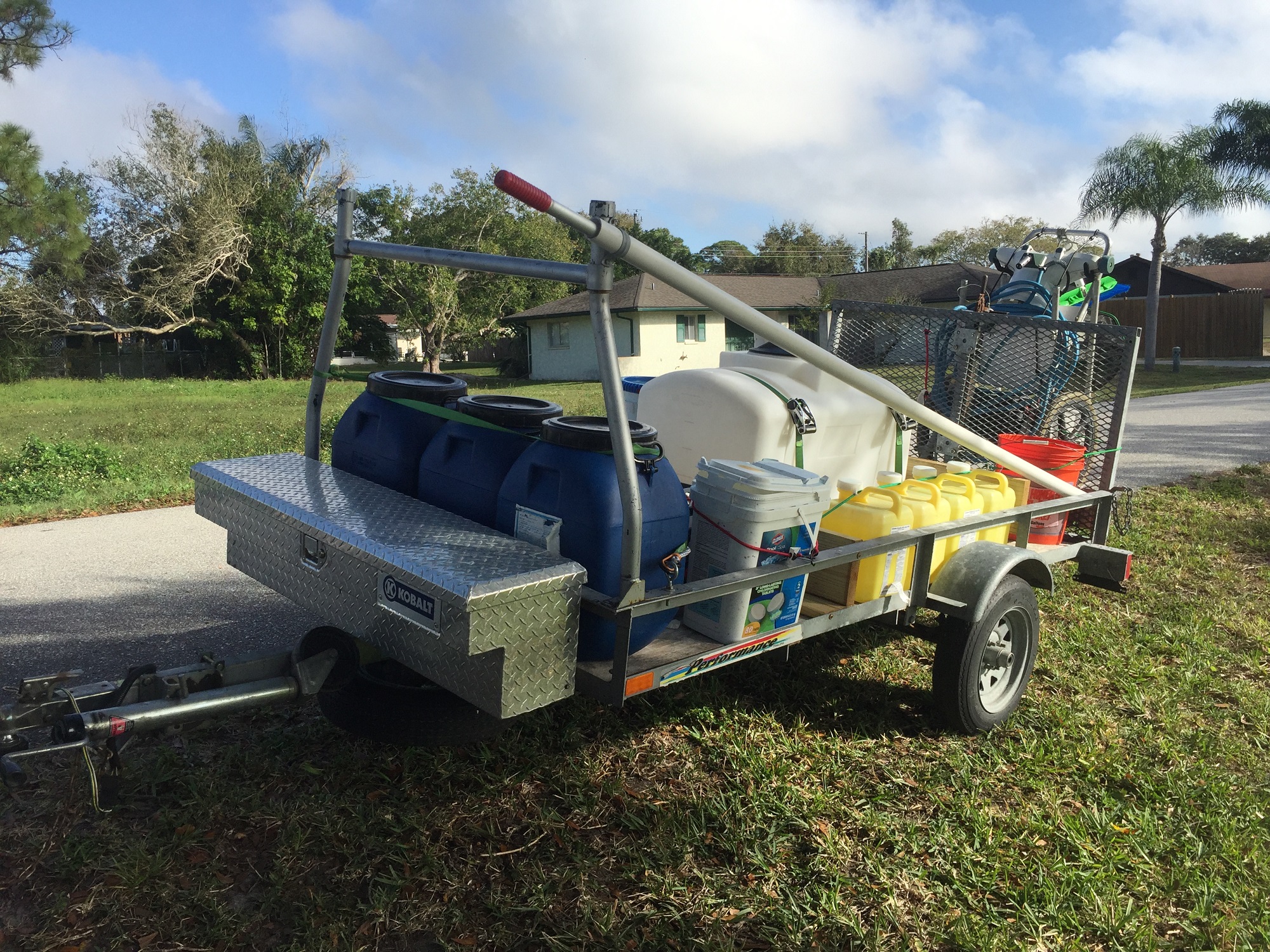Pool pros, take heed: You might be on the Department of Transportation’s radar. Rob Sanger, president of Galaxy Pools in Sarasota, Fla., had a run-in with the federal agency recently. He was supposed to update a special permit that allows his firm to transport more than 600 gallons of bleach in a 30-ton truck.
But he didn’t. And there will be consequences.
“We’re waiting to see what kind of fine we get,” Sanger said.
What the investigator told him should give pool service technicians pause: According to Sanger, the DOT official said that the agency is on the lookout for pool service vehicles, as well as businesses that provide pressure-washing services, because those are the industries most likely to run afoul of regulations concerning the transportation of hazardous materials, such as chlorine and acid. And Sanger has heard of the agency slapping other pool companies with hefty fines.
Though the DOT law applies nationally, reports of recent violations are coming from the Sunshine State. If it’s true that the agency has Florida’s pool industry in its crosshair, it wouldn’t be the first time. David Rivers, an environmental health and safety consultant, said the DOT stung a number of Florida service firms in 2011 and 2012. “I’m not saying they were following the bleach, but it sure seemed that way,” said Rivers, president of R&S Compliance Group in Tampa.
Many of the people who were busted in that blitz can expect a surprise inspection. Rivers said the agency tends to follow up with past offenders about five years later.
Several divisions within the DOT are capable of fining motorists. These include the state Highway Patrol and the Pipeline and Hazardous Materials Safety Administration.
For its part, however, the Florida Highway Patrol said it is not involved in any kind of coordinated crackdown. “There may be individual officers in an area or various areas around the state who are conducting routine enforcement involving [pool service] vehicles as a normal course of business,” said Capt. Jeffrey Bissainthe, chief of public affairs.
At any rate, consider this a friendly reminder to follow the rules of the road.
The fact of the matter is the vast majority of pool service companies are likely out of compliance with DOT hazmat regulations, Rivers said. The agency allows businesses to haul hazardous materials under certain conditions, called materials of trade. For example, containers of dry chemicals cannot exceed 66 pounds. Likewise, liquid contents must be kept in 8-gallon containers. A vehicle cannot carry more than 440 pounds in total of hazmat items. Many service professionals not only carry drums of dry chemicals, but also tanks of chlorine between 50 and 100 gallons. Therefore, many are exceeding the weight limit.
“What ends up happening is the package limitation is overlooked, ignored,” Rivers said.
Plus, there are specific documents and labels that service companies need in order to legally haul the tank in the back of a pickup. Drivers also are subject to the full scope of hazmat rules and regulations once they exceed the weight limit. A commercial driver’s license is required in order to carry 1,000 pounds of hazardous materials.
Even then, professionals must maintain their licenses with updated permits and training.
And some smaller, more technical things can trip up a service firm. You cannot transfer hazmat to another container while it remains on the transport vehicle. So tapping the tank to refill a 2.5-gallon chlorine jug is illegal.
Rivers said he’s aware of five instances in the last month when DOT fined small-business owners — two of them pool service firms. That’s not out of the ordinary, he added. Fines range from $7,000 to $10,000.



